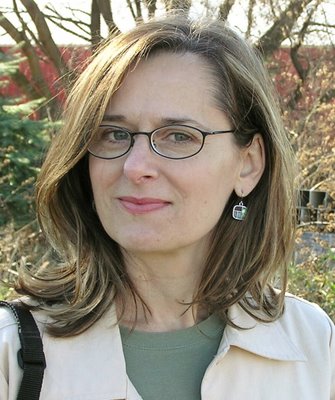Three Months Later
Sitting next to Joseph on a bench painted like a black and white spotted cow, my mind is racing.
We've worked so hard... the testing, adjusting, the basal rate changes... so many long nights...
It has to have come down.
A knock at the door, and into the exam room steps a young woman with wavy blond hair and a slightly nervous smile.
A resident.
"Hello, Dr. C wanted me to meet with you before she comes in."
The resident takes a seat in the swivel chair opposite us and stares for a few moments at Joseph's file.
"Let's start with the basal rates-- what are they right now?"
Joseph leans back a little, pulls out his pump and gives her the numbers.
"Now," she continues, "do you correct a high blood sugar?"
Joseph and I look at each other.
"Umm, yes-- usually we do," I tell her. "Joseph's insulin sensitivity factor is 1:175-- we use that as a starting point and then adjust depending on activity level, insulin on board... "
The resident looks puzzled.
"What I mean is-- " she begins, shaking her head, "most families will do a correction starting at a blood glucose of 200, and then give a certain amount of insulin for every 50 points above that. So how much do you give him in that situation?"
And now I'm confused.
"It sounds like you're talking about a sliding scale-- we don't really use one. One unit of insulin typically brings his blood sugar down 175 points. So we calculate his correction based on that formula... "
I pause a moment-- suddenly annoyed by the woman's blank stare.
" ... but again, we only use this as a general guide, while taking many other factors into account-- like food, activity, insulin on board, and so on."
"Well, but you always correct a blood glucose over 200, right?"
"Again-- it depends. For example, if an hour earlier he was 300, then he's coming down pretty fast. In a situation like that, no-- we wouldn't do a correction. I guess what I'm trying to say is that there are no hard and fast rules here-- there are just too many factors."
She pauses, clearly frustrated with my answers.
"Do you have diabetes?" Joseph asks her.
I shoot him a look.
"Uh, no-- no, I don't."
After taking a cursory look at Joseph's sites, she finally leaves the room.
"Well that was weird," Joseph says. "Why do they send in people who don't really know what they're talking about?"
Stifling my own frustration, I take a breath before answering.
"Well, Bud-- I'm sure that's why they do it. It's probably the best way for new doctors to learn."
Just then, there's another knock at the door, and in walks Joseph's endocrinologist.
For a split second, my stomach is a mad frenzy of butterflies.
"I am so pleased," she says with a broad smile.
"Joseph you're doing beautifully. You're growth is perfect. You're all doing a wonderful job!"
I look at her, hopefully-- willing her to go on.
As if reading my mind, she nods-- still smiling.
" ... and yes, the A1c fell-- from 8.5 to 7.9."
With those words, Joseph jumps up and flings his arms around his endo.
Sitting still, so relieved-- I watch the two of them celebrate.
No more butterflies.
Just a huge lump at the back of my throat, and two eyes clouded with tears.





